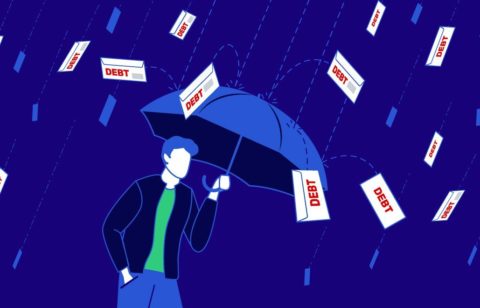The holiday season is fast approaching; soon, you’ll be out shopping for gifts and getting ready to see family and friends. However, if you’re like millions of other Americans, you’ll probably be thinking about your debts a lot, too. Holidays are one of the peak times of the year to be stressed out about money and debt. It doesn’t have to be that way, however. Instead of letting your less-than-perfect financial situation get you down over the holidays, you could start thinking about how you’re going to get all your debts under control. Here’s some great debt help and advice you can use to get the holidays and the new year off to a great start.
Get Help
When it comes to improving your finances, you should never get it alone. This holiday season, go ahead and treat yourself by getting some debt help and advice from a financial advisor. Financial advisors can help you analyze your current situation and guide your decision-making as you attempt to get your debts under control. They could also give you great advice about retirement planning, as well as advice on how to put the money you’re making right now to good use. This type of advice doesn’t cost as much as you’d expect, either. So, instead of fretting over your credit card debt and the cost of airline tickets this holiday season, sit down with a financial advisor and talk about the best way to tackle your debts.
Set a Budget
The new year is right around the corner, so this is one of the best times to set a budget for yourself and get your finances under control. If you start making a budget now, you’ll be able to figure out how much money you have to spend over the holidays, as well as how to meet your financial goals in the new year. A new budget doesn’t have to be boring or complicated, either. There are several ways to make budgeting simple and effective and even a little bit fun. This will help you go into the holiday season with a sense of confidence, instead of the usual dread.
Get a Side Hustle
The holidays could be a great time to start a side hustle or a part-time job. Many stores and delivery businesses need extra help around this time of year. If you took a part-time job with one, you could mitigate the effects of holiday spending. A long-term side gig would be great for accelerating efforts to pay down your debts; it could also assist you with saving money for other goals, such as purchasing a new home or car. So, find a good holiday gig for the next month or two and read up on debt help and advice. Then, after the holidays are over, maybe driving for Uber or Lyft, or freelancing for Upwork, Fiverr, or some other online platform can be just what you need to improve your cash flow situation for the long-term.
Don’t Buy Junk
A somewhat counterintuitive piece of advice for the holidays is to ensure you buy high-quality items even if you have to pay a little bit more. When it comes to things you use every day, such as computers and mobile devices, appliances, shoes, etc., you should buy the highest quality items you can afford. While this may set you back a bit financially in the short term, higher quality items like these generally last longer, so you won’t have to replace them again soon. Additionally, owning a high-quality item that works well and has more functionality will likely give you additional satisfaction. Therefore, if you’re going to use the Christmas money you receive to buy a new dryer, make sure you buy a good one.
Keep Score
It’s a sad but true fact that most New Year’s resolutions end in failure. If you want any of your financial plans and goals to survive the holidays and into 2021, you’re going to need to hold yourself accountable. Make a list of everything you plan to accomplish during the new year somewhere and review it regularly to assess your progress. If you’re falling behind in efforts to accomplish key objectives, such as paying down debt, redouble your efforts and try to salvage the goal any way you can. You should also assess your budget routinely as well; doing so will keep you on track and help keep saving and investing on track. If you routinely assess your progress toward financial goals, you’ll have a better chance of achieving them by next year’s end.
Get the Right Debt Help and Advice
As the holidays approach, don’t let the thought of all that shopping and spending get you down. Instead, take the tips and advice offered here to heart, and use this crazy time at the end of the year to get your financial affairs in order. If you begin right now, you can start 2021 with a bang, and get yourself into the best financial shape of your life throughout the rest of the year.







